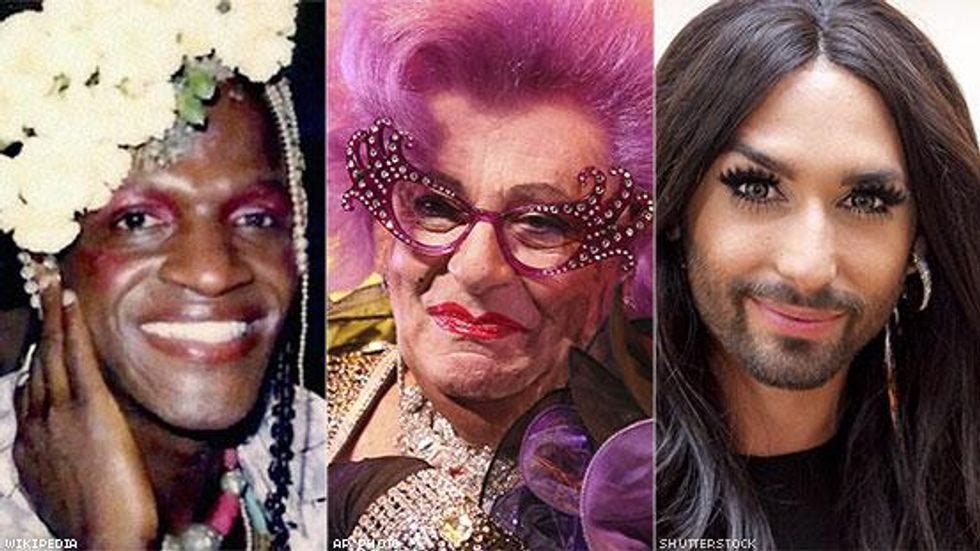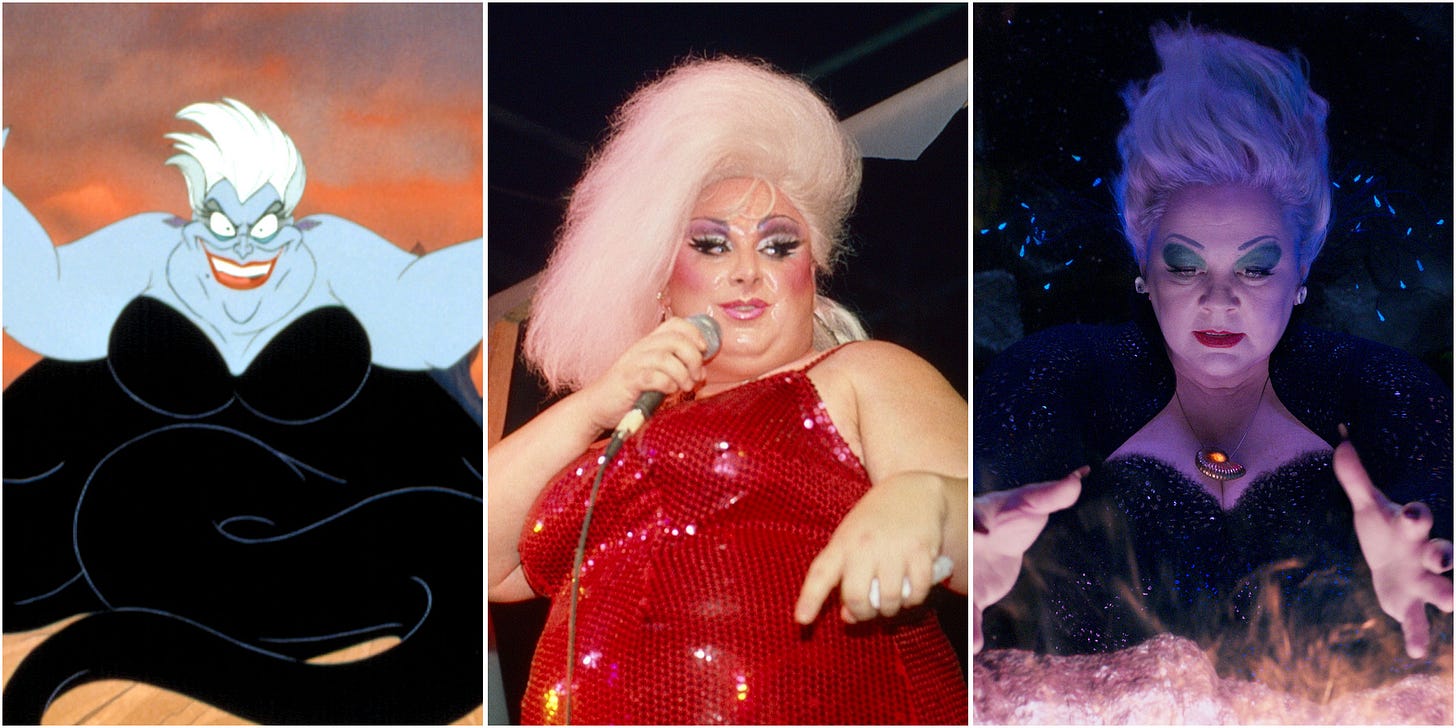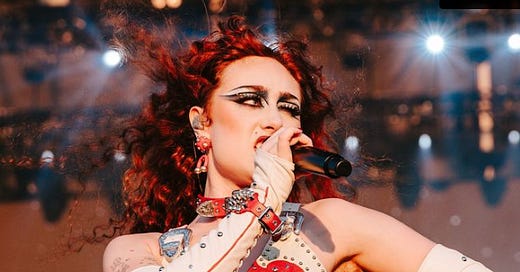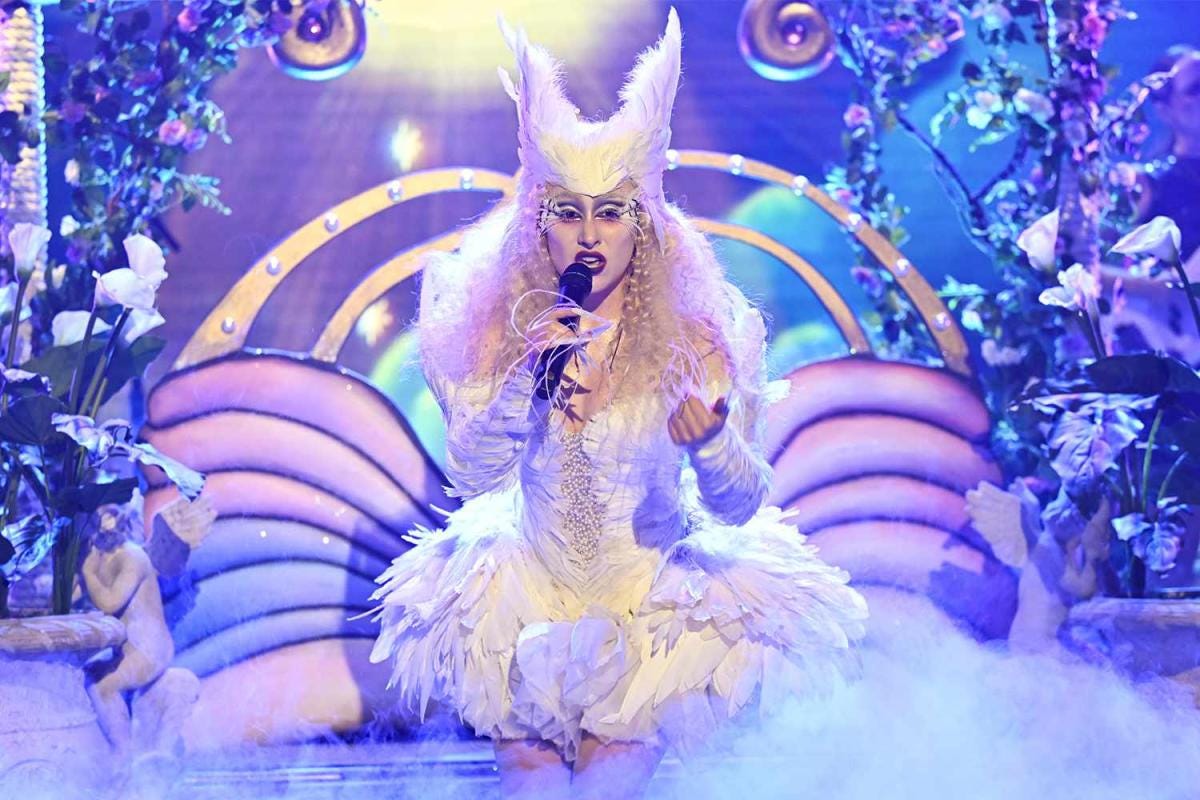Where boys and girls can all be queens
Chappell Roan left Southwest Missouri for a queer paradise that doesn't exist yet. But it is under construction.
ACL’s biggest star this year isn’t the headliners — it’s Chappell Roan, a Missouri-born singer whose story I’ve been following since I found out she was from a small town not far from where I grew up.
She started playing the piano and performing in her early teens and was signed by 17 under a name of her choosing: Chappell, her grandfather’s last name, and Roan, a nod to his favorite song: “The Strawberry Roan,” an old cowboy song — popularized by Marty Robbins — about a horse too wild to tame.
Roan is a color, a chestnut red sprinkled with white or gray.
But this Roan is a force.

It’s hard to explain just how popular this singer has become in the past six months. Her ACL performance last weekend was likely the largest crowd ever at a music festival known for large crowds.
Tens of thousands of people going wild for a performer who experiments with gender and sexuality and art on what is now a very big stage. She wears heavy make-up and elaborate costumes and nails. Hair big enough to match her swagger.
Although Chappell is white, she’s taking part in a culture that is rooted in queer Black and Latino communities.

The drag movement — exaggerated make-up, high fashion, higher heels — is closely associated with Black and Latino performers in New York City, but the first “queen of drag” was William Dorsey Swann, who hosted dance parties in Washington, D.C. in the early 1880s. Because of how risque these parties would have been, few records were kept about what happened there.
As drag culture evolved in the 20th century, it remained underground until it could no longer be contained.
The gay rights movement paved the way for the queer movement we have today that embraces not only everyone on the sexuality spectrum, but everyone on the gender expression spectrum.
I never really understood the outsized effect that drag has had on American culture until I started paying attention to trans and non-binary folks who were dispelling myths about history of gender, namely that the binary we’ve created between men and women is a relatively new phenomenon.
People have been coloring outside the lines of gender for as long as there have been humans.

It’s been painful to watch drag culture be specifically targeted in the past few years. In a country with so much violence and anger, drag queens reading to kids should be the least of anyone’s concerns. And besides, kids have been influenced by drag culture since Ursula in “The Little Mermaid,” and Robin Williams’ “Mrs. Doubtfire” and Cathy Rigby’s “Peter Pan.”
But the truth is that even if you’re in a queer mecca — perhaps the West Hollywood that Roan sings of in her song, “Pink Pony Club” — safety is not assured. As anti-trans rhetoric and legislation have increased in the past 10 years, so has anti-trans violence, which hit an all-time high in 2021.
Despite the fears of critics like JK Rowling, trans and gender non-conforming people are not the source of this violence. It’s the people who cannot wrap their heads around people who don’t fit into an assigned cultural box and let their confusion obscure their compassion.
Part of my own examination of race and queerness has led me to turn to educators like Alok Vaid-Menon, a poet, writer, and stand-up comic who helps me think outside my own lived experience to try to understand the nuances of trans and queer issues.
Vaid-Menon has helped me see that comedy is, perhaps, the best teacher. This summer, I saw “To Wong Foo, Thanks for Everything! Julie Newmar” for the first time at the Paramount Theater’s Summer Film Series. I laughed until I cried and left the theater in awe of this film that I should have seen a long time ago.
I shouldn’t be surprised that this movie about three trans women on a road trip across the county didn’t make its way into my home growing up. My family was progressive, but not quite that progressive. It turns out that there’s very little in the movie that wouldn’t pass the Midwestern feel-good movie test. The trio of heroines fight bigotry with kindness and creativity. They harness their passion for self-expression in ways that encourage others to express their true selves.

I sat stunned in the historic theater when Patrick Swayze’s character, Vida Boheme, said farewell to one of the young girls in the small town they were about to leave. The little girl tells Vida that she wants to be a career girl like her when she grows up.
“You can be anything you want to be,” Vida tells her.
That’s the message of drag: That you are only limited by the power of your imagination.
Drag is a joyous monument to the power of possibility.
This brings us back to Chappell Roan.
Roan has been making music for more than a decade, but up until a few years ago, she had a standard indie pop star look that was very demure, very mindful. (This meme, like nearly all of them, originated from a queer content creator of color.)
But after enough years in LA, away from the restrictive environment in her home state, she gave herself a makeover to create a persona that doesn’t exist to pine for the approval of others. And specifically, of men.
“The whole project is to honor my 10-year-old self. My whole persona is just me trying to honor that version of myself that I was never allowed to be,” she said in an interview with drag star Trixie Mattel for Paper magazine.
This is why I have become such an advocate for trans and non-binary folks in the past few years. I’m not an expert on drag culture. I don’t even watch “RuPaul’s Drag Race.” But I keep a close eye on people who are at the forefront of the liberation movement.
The people who fight for their right to exist in a way that feels comfortable to them and that, despite all the hand-wringing and pearl-clutching, don’t harm others in the process.
The creative, courageous community builders who risk their personal safety so you and me and my kids and your kids and your neighbors and your siblings and your best friends and your coworkers can explore their own gender and sexuality in a way that is theirs and theirs alone.
What’s ironic is that the very first people I know who did this were the cross-dressing and trans women in my hometown back in the 1990s.
In a place with so much sexual and gender oppression, these neighbors — one of whom was one of my very first co-workers at the newspaper in Aurora — bravely said, “No more.”
They cast off their old identities and presented themselves in ways that didn’t make sense to others but couldn’t be clearer to them. I can only imagine how much comfort they felt from movies like “To Wong Foo,” where Wesley Snipes’ character advises: “Larger than life is just the right size.”
Queer visibility is one of the most important parts of pop culture today, and Chappell Roan just so happens to be in the center of the spotlight of what is a growing stage.
Sadly, it’s not any safer to be up there today.
The armor Roan wore recently in her Joan of Arc-inspired performance at the MTV Video Music Awards was an apt metaphor for the protection that folks like her need when they enter what is still a cultural battle that I thought we would have moved on from by now.
Despite the critics, the people who feel so threatened by others who express themselves in ways they don’t understand, the tide is shifting.
Even in Southwest Missouri, where queer culture is changing not because Chappell Roan is suddenly popular, but because of people who stayed and are building the kind of community they have always needed.
Roan had to leave to find what she needed, and that’s OK, too. Her fans are watching and learning and un-learning about themselves thanks to a few catchy pop songs and this brave young woman who knows she is standing on the shoulders of queer ancestors who fought for their right to be on stage at all.
There are no queer utopias because there are no utopias, but maybe there’s a queer paradise that’s currently under construction by people who have had a sense of this individual and collective awakening. Once you taste it, there’s no going back.
That’s the headline behind those enormous crowds we’ll see again this weekend for Chappell Roan’s set at Zilker Park: Queerness is not quiet and it will not be silenced.
Happy Friday, friends! I’ve been working on this Chappell Roan piece all week, in between her record-breaking ACL performances. (She’s set to perform on Sunday afternoon.)
And I’ve also been working on one of her songs. I love the lyrics and melody of “Pink Pony Club,” so I found some YouTube videos and got to work dusting off the part of my brain that stores what I learned in piano lessons as a kid.
It’s been cathartic to get my fingers playing again and instill some new muscle memory that comes from practicing. And to sing about and ponder the push and pull of the song.
I know you wanted me to stay
But I can't ignore the crazy visions of me in LA
And I heard that there's a special place
Where boys and girls can all be queens every single day
I'm having wicked dreams
Of leaving Tennessee
Oh, Santa Monica
I swear it's calling me
Won't make my mama proud
It's gonna cause a scene
She sees her baby girl
I know she's gonna scream
God, what have you done
You're a pink pony girl
And you dance at the club
Oh mama, I'm just having fun
On the stage in my heels
It's where I belong down at the
Pink Pony Club
Feeling discomfort where you are. Longing for new places. Finding where you belong.
The rich themes make for juicy emotions that are behind the best songs ever written. Do I think this song will go down as one of the all-time greats? Will Chappell Roan still be this famous in a year? Am I overly optimistic about the changes ahead for the queer community?
I’m not sure about any of it, but I know what makes my heart swell. And this song makes my heart swell.
I hope you all have a wonderful weekend. Be safe and have fun if you’re heading to ACL. Be safe and have fun, even if you’re not.
And if this newsletter challenged you, thanks for reading all this way. I appreciate your open mind.
Thanks for subscribing and for your support of this newsletter. Paid
Back next week,
Addie







Lovely piece. Thanks for uplifting us gender queer folks ❤️